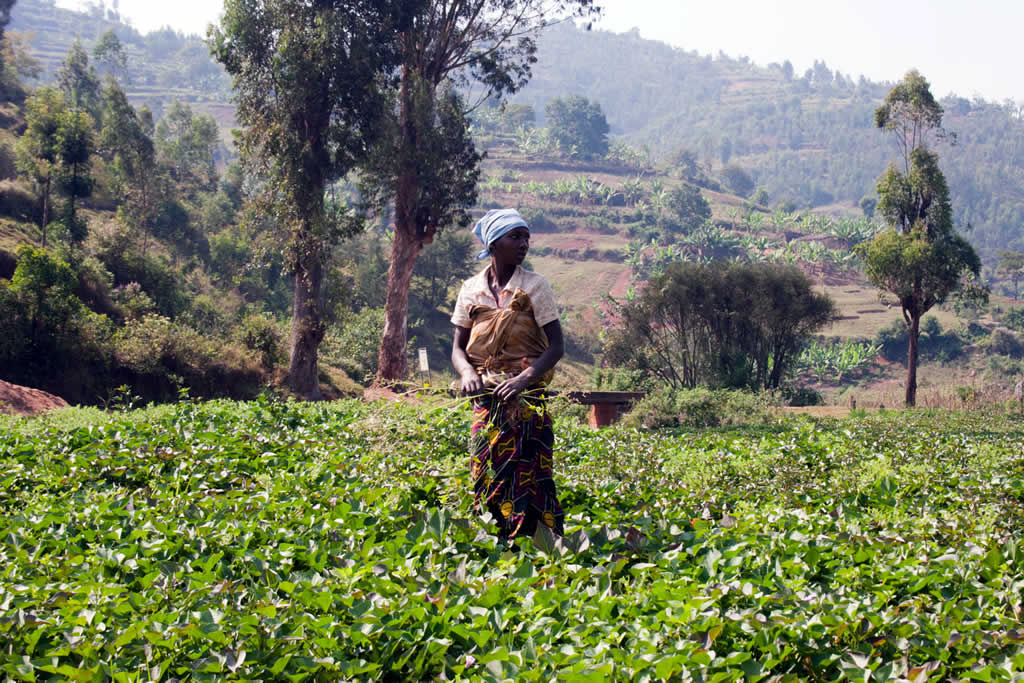
Smallholder farmers and other poor rural people in developing countries, such as pastoralists and artisanal fisherfolk, are expected to suffer some of the worst impacts of climate change in the decades to come. Many of these people already live with climate variability and the recurrence of extreme climate events – droughts, floods and tropical storms. Determining the precise relation of these regional patterns to global climate change is a complex and important task, but it can generally be expected that current patterns of extreme climate will intensify, while longer-term shifts in temperature and rainfall come into play.
The impacts of climate change on the rural poor will be very locally-specific and extremely hard to quantify and model, because of many core aspects of their livelihoods:
- Complexity; households typically plant several crops and/or keep several livestock species, often combined with off-farm employment
- Diversity; these combinations will differ between villages and between households within villages
- Inherent risk; smallholders, pastoralists and others have often been pushed into the riskiest environmental niches
- Multiple stressors; climate change is far from their only worry – they are already exposed to environmental degradation, negative impacts of globalisation, bad policy, poor services, conflict, and human and animal disease
- Continuous coping and adaptation; smallholders' lives already incorporate ways of coping with risk – some of which helps adaptation in the long-term, but some, like decreasing fallow periods, or cutting firewood for sale, may hinder it.
However, we do not need to quantify or model impacts in order to assist adaptation by the rural poor – the work is already, and rightly, ongoing. Why do outsiders (such as NRI and the development donors who fund us) need to assist smallholders with adaptation? There are several answers:
- The rate of climate change may outstrip smallholders' own considerable ability to adapt; the incremental changes in crop varieties and agronomic practices they are already used to making may become insufficient.
- Smallholders (and those who serve them at a local level) will need assistance in looking beyond the next few years and current patterns of climate variability.
- Smallholders' capacity to adapt is limited by resource constraints (for example insecure land tenure, or poor access to credit) and inappropriate policies.
- External assistance can facilitate shared learning between different stakeholders in rural economies and across localities,
- And finally – climate change is a global problem and it deserves a global effort.
What sort of assistance should we offer? At NRI we believe the help we should give should follow some core principles. It should be:
- Decentralised – to cope with the diversity and local specificity of smallholder systems
- Participatory – to build on farmer knowledge, and to cope with complexity of farming systems and livelihoods
- Multi-stakeholder – to incorporate wider perspectives (public and private), and to feed up knowledge into policy and government and donor investment
- Gender-aware – as women's role in developing country agriculture, and their particular vulnerabilities to climate change, can too easily be overlooked.
Finally, our assistance should always incorporate capacity-building for smallholders and other local stakeholders and not treat them as passive beneficiaries.
This last point is illustrated by a number of recent and ongoing NRI projects. In particular our project Climate Learning for African Agriculture involves action research on how agricultural research and advisory services across Africa, governmental, private and third-sector, can respond to climate change, not only in the sorts of information they generate and disseminate, but also in the ways they organise themselves and manage their resources. The project is now starting programmes of research and collective learning in four African countries: we hope to tell you more in future editions of The Resource.
John Morton

